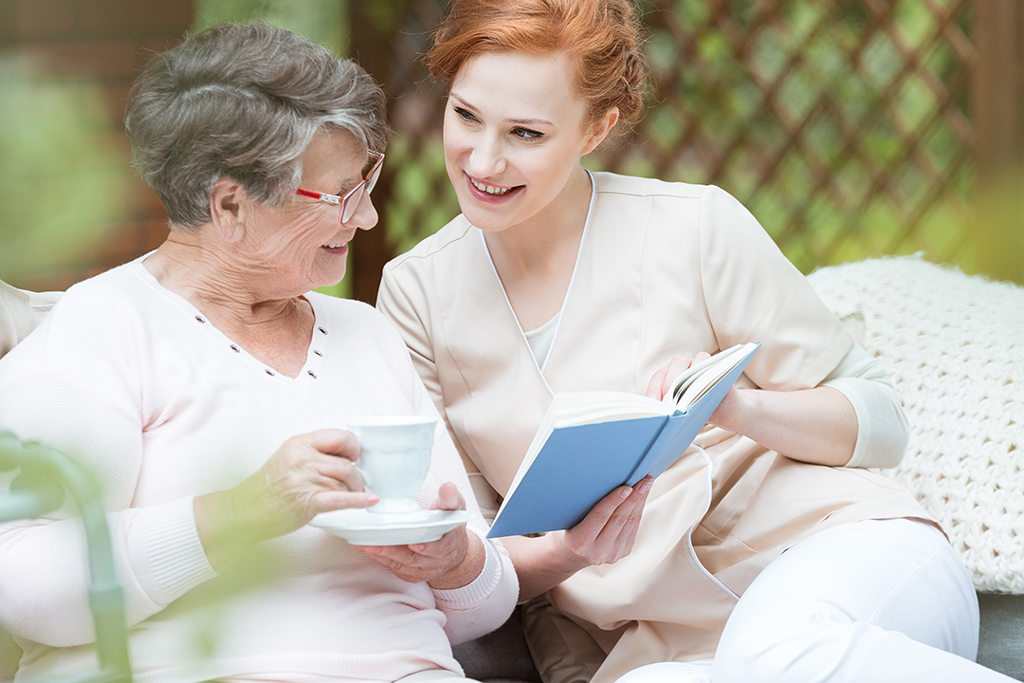
Non-surgical Treatment for Parkinson’s Disease
Parkinson’s Disease Treatment
Parkinson’s disease is a brain disorder that causes shakiness, stiffness, and problems with balance and coordination. Nearly 60,000 Americans are diagnosed each year, according to the Parkinson’s Foundation. There is no cure for Parkinson’s disease, but treatment is available to help reduce symptoms.
What are the Main Symptoms of Parkinson’s?
Parkinson’s disease occurs when nerve cells that control movement in the brain and spinal cord become impaired and die. The disease develops slowly over years. Symptoms generally begin on one side of the body. As the disease progresses, symptoms will affect both sides. Parkinson’s disease symptoms can include:
- Involuntary shakiness in the hands, arms, legs, jaw, and face
- Stiffness or tightness in the arms or legs
- Slowness of movement
- Poor balance and coordination
- Quiet or slow speech
- In advanced stages, dementia also can be experienced
How is Parkinson’s Disease Diagnosed?
There is no blood or imaging test that can check for Parkinson’s disease. Instead, your physician will ask about your medical history and the symptoms you’re experiencing. He or she will also perform a physical and neurological exam. This will include checking your hearing, vision, reflexes, balance, strength, memory, and concentration.
The symptoms of Parkinson’s disease are similar to some other neurological conditions. Your physician may order blood tests or scans to rule out other causes. He or she may also prescribe Parkinson’s disease medication and see if it helps your symptoms. If it does, that would indicate your symptoms are caused by Parkinson’s.
How is Parkinson’s Disease Treated?
There is no cure for Parkinson’s disease at this time. However, there are treatments that are effective at controlling symptoms and slowing the progression of the disease. Medication typically works very well, especially when started in the early stages of the disease. Eventually, surgery—specifically deep brain stimulation -- might be recommended if medication stops controlling your symptoms.
Lifestyle changes also can help manage symptoms. Your doctor may recommend ongoing aerobic exercise, outpatient physical therapy that concentrates on balance training and stretching, speech therapy including a specific program called LSVT, and occupational therapy.
The Rehabilitation Center of Penn Highlands Healthcare offers a therapy program specific to individuals with Parkinson’s disease and other neurological conditions. It includes outpatient physical therapy, speech therapy, and occupational therapy. We also offer LSVT LOUD and LSVT BIG for Parkinson’s.
Need a primary care physician? See a list of PHH doctors.
LSVT Loud and LSVT Big for Parkinson’s Patients
Lee Silverman Voice Treatment, or LSVT, is an intense treatment protocol to help slow the decline of motor and speech skills in patients who have Parkinson’s disease. There are two types of LSVT therapy: LSVT LOUD and LSVT BIG. We offer both at The Rehabilitation Center of Penn Highlands Healthcare.
LSVT programs are specifically designed to treat symptoms of Parkinson’s disease. Patients with Parkinson’s who start speaking softer or slower can benefit from LSVT LOUD, which uses vocal exercises to help them speak louder and more clearly. LSVT BIG helps gait and movement problems through outpatient physical therapy and occupational therapy to help patients have smoother, safer movements.
LSVT is available at:
• The Rehabilitation Center at Penn Highlands Clearfield offers both LSVT BIG AND LSVT LOUD. Call 814-768-2285 for information.
• The Rehabilitation Center at Penn Highlands Elk offers LSVT LOUD. Call 814-788-8490 for information.
Meet Moose a LSVT Patient
Parkinson’s Support Groups
Being diagnosed with Parkinson’s disease can take a toll on you mentally, especially if symptoms are diminishing your quality of life. Penn Highlands offers two Parkinson’s support groups—one in DuBois and one in Clearfield. These groups are open to people who have been diagnosed with Parkinson’s disease as well as family members. Both support groups provide a safe space for patients and families to discuss their challenges, get support from others, and share tips for coping with the disease. are designed to give patients and family members people to talk to and to help them learn how to cope with Parkinson’s disease.
